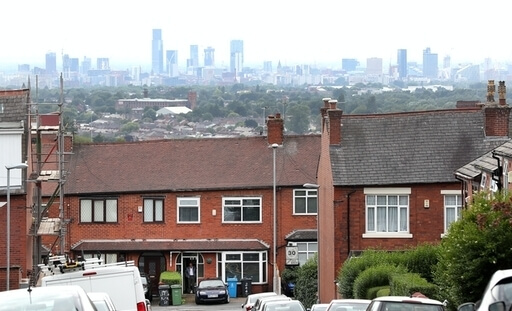Four out of five people surveyed from London, Manchester, Birmingham, Cardiff, Belfast and Glasgow believe Mayors and city leaders should have more powers to cut carbon emissions, according to new data revealed today by the global environment consultancy Arup.
The research shows that despite thinking their leaders should have greater influence, fewer than half of those surveyed know what action their city is taking to reach net-zero. A further two-thirds agreed that city leaders need a seat at the table during international climate conferences such as COP26 for meaningful progress to be achieved.
The research was conducted by Censuswide between 14 and 20 October 2021, with 2,403 respondents (aged 16+) who live in specific cities – guaranteeing 400 in London, Manchester, Birmingham, Cardiff, Belfast and Glasgow respectively.
Ahead of COP26, Arup is calling for greater investment capital and confidence in city-led climate action to inspire future initiatives.


Richard de Cani, Global Planner Leader, Arup, said: “Today cities generate more than 60 per cent of global greenhouse gas emissions and we know by 2050 the world’s urban population will exceed six billion, presenting huge challenges for cities established and new.
“While we need international and national policies to address this, city leaders need more power to take action now and implement plans that will be effective at reducing carbon emissions in their city. Our research shows people see a vital role for their Mayors and leaders in tackling climate change, which is why they need greater visibility and a seat at the table at events such as COP26.”
The Mayor of London, Sadiq Khan, said: “With the UK hosting COP26 next week we need to take bold action now or face the consequences – with catastrophic impacts on our environment, the air we breathe and the climate.
“I’ve committed to making London a zero-carbon city by 2030, faster than any other comparable city, and it’s why we are delivering a climate action plan that is compatible with the highest ambitions of the Paris Agreement. I also want London to be a zero-pollution city so that no child has to grow up in our city breathing toxic air. That’s why I have now expanded our Ultra Low Emission Zone to cover all of inner London.
Mr Khan will officially be made chair of C40 cities at the COP26 summit in Glasgow.
The C40 group is an international network of 97 cities, created to work together to tackle climate change while promoting sustainable economic growth.
The group began in October 2005 when then-London Mayor Ken Livingstone held a meeting of representatives from 18 cities to forge an agreement on collectively reducing climate pollution.
London has already introduced an Ultra-Low Emissions Zone to reduce emissions from transport and improve air quality across the city. Other UK cities including Manchester, Birmingham, Cardiff, Belfast and Glasgow have also introduced wide-ranging policies such as reforesting and clean air zone initiatives to help reach global climate targets.
These new survey figures come amid the news that a rising chunk of Britons are in favour of a referendum on the Government’s net zero targets.
In a YouGov survey conducted this month, forty two per cent of British adults said they supported a vote on the government’s net zero plans. Of those who expressed a preference on the proposal, 58 per supported a referendum.












